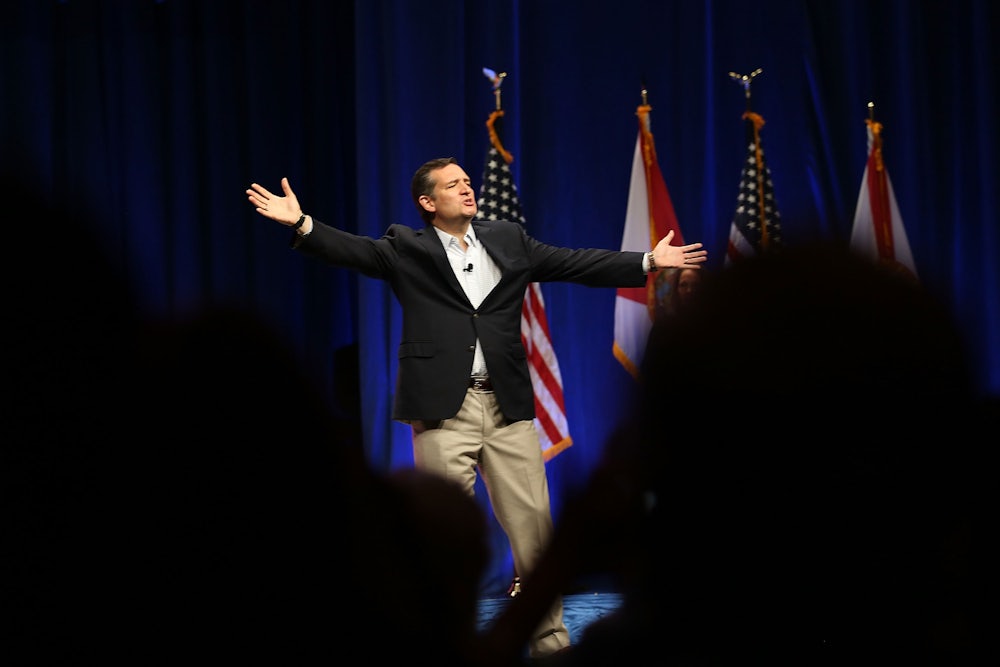The right’s reaction to the deadly holiday weekend shootout at Planned Parenthood in Colorado Springs—a white evangelical redoubt of a rapidly diversifying state—followed a predictable trajectory through what you might call the five stages of information loop closure.
First, denial, reflected in a reactive counter-consensus that the shooter, Robert Lewis Dear, was actually a bank robber taking refuge, not a terrorist.
Second, anger at anyone who dared suggest that an unhinged gunman might have taken the right’s dishonest anti-Planned Parenthood incitement campaign (remember this?) a bit too seriously.
Third, bargaining—that the gunman was probably mentally ill and not a serious anti-choice activist, didn’t kill any abortionists, and anyhow liberals have incited terrorist violence too, perhaps.
Fourth, depression, represented by prolific conservative social media users who disengaged from the story, and in some cases from all social media, altogether.
Fifth, straight back into denial, where you’ll find people like Ted Cruz suggesting that maybe the gunman was a left-wing transgender activist, and refusing to speculate on the motive of a person reported to be religious and anti-choice and who reportedly exclaimed “no more baby parts!” after being taken into custody.
The hopeful window in which conservatives might have engaged in group reflection was open for less than 24 hours before they slammed it shut decisively. That’s doubly frustrating, because the tragedy unfolded against the backdrop of an ongoing debate over the strategic merits of using the term “radical Islamic terrorism” to describe the crimes of groups like ISIS.
The confluence was an opportunity to reckon with the contradiction between the breezy way conservatives generalize their perceived antagonists, and the zeal with which they demand antagonists treat them with nuance. Needless to say, it was an opportunity missed. Conservatives’ defensive reaction to the Planned Parenthood shootings exquisitely underscores both the moral and the strategic imperative of using precise language in our public diplomacy with the Muslim world. But they lack the empathic thinking required to make the connection.
According to conservatives, including leading Republican presidential candidates, it is impossible to defeat ISIS unless we describe them with that exact terminology. Liberals make the counterargument that conflating “terrorism” with “Islam” or “radical Islam” is both insensitive (debatable) and strategically unwise (100 percent true).
Conservatives are seemingly aware that insisting on “radical Islamic terrorism” nomenclature is a hollow ruse, the purpose of which has more to do with appealing to Islamophobic sentiment and dividing liberals than with any geo-strategic goals. What gives the “radical Islam” language away as a partisan wedge is that it’s highly prescribed and revealingly imprecise at the same time. When they aren’t hammering away at that wedge, conservatives are happy to use specialized terminology, which is both more precise and less inflammatory.
We'll be fighting the Salafi jihad, today called AQ+ISIS, for many decades yet. This is war. You really don't want to let these animals win.
— John Schindler (@20committee) November 28, 2015John Schindler is a blogger, former professor and former NSA analyst, and champion of the national security state. I cite this tweet not to associate him with any particular opinion about the religious right or Republican war rhetoric, but to illustrate the fact that plenty of conservatives are smart enough to know the term “Salafi jihad,” and to use it when they want to project erudition. None seem to realize that it gives the “radical Islam” game away entirely. Liberals and Democrats would have no problem defining groups like ISIS as jihadist or Salafi jihadists, which should obviate the need for more alienating terms like “radical Islam”–except that “radical Islam” pays unrelated political dividends, and must therefore supersede more appropriate diction.
What’s less surprising, but more dispiriting, is that conservatives are unable to see the trouble with conflating terrorism and radical Islam reflected in their own cognitive rejection of the terms used to describe Dear.
If conservatives had their way, the media would consider it off limits to describe Dear as Christian or right wing or anti-abortion—let alone to reference a generic concept like right-wing Christian terrorism—because we don’t know all the facts, and because even if it turns out he’s all of those things, his actions don’t reflect the values of Christian conservatism.
These are understandable desires, but they’re also precisely what animates liberal opposition to “radical Islam” terminology. If conservatives find it alienating to see their religious and ideological convictions conflated with terrorism in the media, then surely it must be alienating to Muslims when they hear the same language from people trying to convince them to enlist against ISIS. But it turns out those most inclined to take up a rhetorical war against “radical Islamic terror” are the same people who get upset when anyone calls a radical Christian a terrorist.
